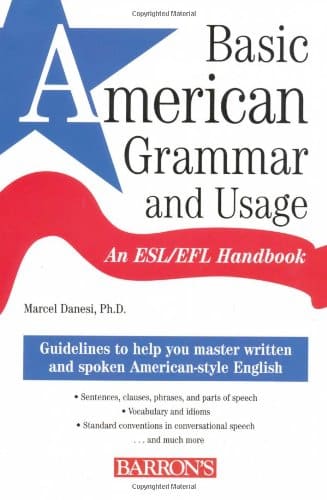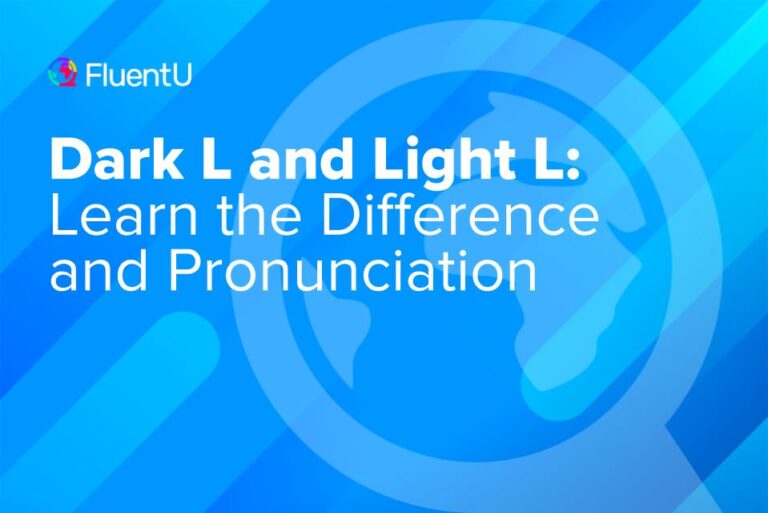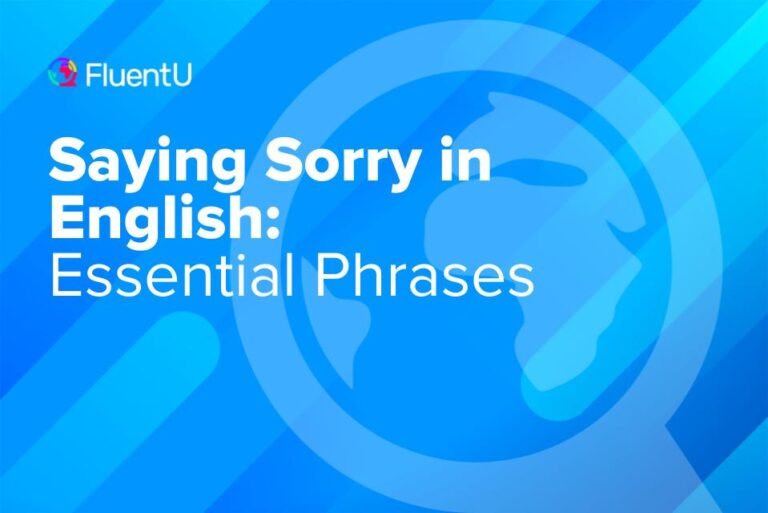Contents
- Collective Nouns Are Singular
- Present Perfect Isn’t Used Very Often
- Transitive and Intransitive Verbs Can Differ
- Simple Past Tense Verbs End with “-ed”
- The Use of “Have Got” Isn’t Very Common
- Some Modal Verbs Differ from British English
- Adverb Placement Varies
- “Well” Has Fewer Uses
- Resources for Practicing American English Grammar
- And One More Thing...
8 American English Grammar Rules

American English has its own style, characteristics, words and even grammar.
If you want to avoid being misunderstood or just want to sound more like a natural American English speaker, it’s important to learn these traits.
I’ve put together an easy, eight-step guide to understanding how American English grammar works, and what makes it different from British English.
Download: This blog post is available as a convenient and portable PDF that you can take anywhere. Click here to get a copy. (Download)
Collective Nouns Are Singular
“Collective nouns” refer to groups of people, like team, family or band.
American English usually treats them as singular nouns:
American English: The staff is taking the day off.
American English: The committee is making the decision today.
Meanwhile, in British English, collective nouns are treated as plural:
British English: The staff are taking the day off.
British English: The committee are making the decision today.
Present Perfect Isn’t Used Very Often
Talking about the past is simple in American English grammar. Americans typically stick to the simple past tense to describe recent, completed actions.
American English: He ate his lunch.
American English: I went to the store.
However, British speakers sometimes use the present perfect tense instead of the simple past in these cases. The present perfect is constructed from the auxiliary verb “to have” plus the past participle of the main verb.
British English: He has eaten his lunch.
British English: I have gone to the store.
In both types of English, the present perfect tense is used to describe an action taking place in an ongoing or unspecified time frame. For example:
British and American English: I have drawn a picture every day this week.
Transitive and Intransitive Verbs Can Differ
A “transitive verb” is a verb that takes a direct object. In other words, transitive verbs describe an action that’s happening to something else, like in these examples.
She will bring pasta to the party. (“Pasta” is the direct object.)
They named the baby Charlotte. (“The baby” is the direct object.)
An “intransitive verb” has no direct object. These include verbs like “to smile” or “to fall.” The key thing to notice is that intransitive verbs are often followed by prepositions and then indirect objects.
She smiled at me cheerfully. (“At” is a preposition and “me” is the indirect object.)
Help! I fell off my bike! (“Off” is a preposition and “my bike” is the indirect object.)
Often, a transitive verb in American English will become intransitive in British English and vice-versa (the opposite).
American English: They agree to the treaty. (intransitive)
British English: They agree the treaty. (transitive)
American English: He appealed the decision. (transitive)
British English: He appealed against the decision. (intransitive)
Simple Past Tense Verbs End with “-ed”
The simple past tense is used to describe completed actions. While there are many irregular verbs that must be memorized, the majority of American English verbs simply need an “-ed” at the end in order to transform them into the past tense.
cook → cooked
However, British English often adds a “-t” at the end instead of the “-ed.”
American English: learned
British English: learnt
American English: dreamed
British English: dreamt
American English: dwelled
British English: dwelt
While you’re likely to be understood no matter which way you construct the past tense, it’s necessary to keep this in mind if you really want to sound like a native American English speaker.
The Use of “Have Got” Isn’t Very Common
The use of “have” vs. “have got” varies in American and British English.
American English uses “have got” less to show possession:
American English: I have a dog.
British English: I have got a dog.
Also, American English is less likely to use “have got” to show obligation:
American English: I have to go home.
British English: I have got to go home.
Don’t confuse these uses of “have got” with the present perfect tense of “got,” which is have/has gotten in American English.
This brings up one more key difference.
American English uses “gotten,” while British English uses “got” as the past participle.
American English: My job has gotten better.
British English: My job has got better.
Some Modal Verbs Differ from British English
Modal verbs are a type of “helping verb” or “auxiliary verb” that help change the tense or mood of your sentence, such as should, would, will, could, might and must.
The usage of these modal verbs differs between American and British English. For example, both types of English use will and won’t, but British speakers also sometimes use shall and shan’t (especially in very formal situations). Americans use will and won’t at all times:
American English: I will go.
British English: I shall go.
American English: I won’t attend.
British English: I shan’t attend.
Americans say “would like to” or “want to” to refer to something they plan or want to do. But British English speakers may also use the phrase “should like to.”
American English: I would like to go/want to go on a date with you.
British English: I should like to go on a date with you.
It may seem like a small difference, but native speakers can instantly tell whether someone is from the U.K. or the U.S. just by listening to this one modal verb.
Adverb Placement Varies
American English changes the position of adverbs quite easily, sometimes placing them before the verb and sometimes after it.
American English: She drank quickly./She quickly drank.
On the other hand, British speakers usually place the adverb after the verb.
British English: She drank quickly.
While this is generally true, do keep in mind that adverb placement is a tricky concept to master because it really depends on the type of adverb. In other words, is the adverb revealing (showing) manner, duration, time or certainty?
For an in-depth explanation, take a look at this article on types of adverbs and how to use them.
“Well” Has Fewer Uses
In American English grammar, the word “well” is only used as an adverb to mean “good.”
However, in informal, conversational British English, the word “well” can also be used to mean “very.”
American English: I’m very sleepy.
British English: I’m well sleepy.
Resources for Practicing American English Grammar
There are a number of ways to practice American English grammar, including the fun and easy option to simply watch TV.
There are tons of American TV shows from which to choose, but I recommend “Modern Family” to get you started. The actors on the show have a variety of American accents, and the characters greatly differ in age. This means that you’ll be exposed to a lot of different grammatical structures and colloquial vocabulary.
Here’s a great video featuring the 10 best moments of the show:

If you want to practice your listening skills, try listening to some American podcasts like the famous “This American Life,” a weekly program with diverse stories.
One of my personal favorites is “Serial,” a podcast that tells one story each season and usually focuses on crime or big political news. The host, Sarah Koenig, has an American accent that’s easy to understand, and she uses impeccable (very good) grammar.
Want to be sure that you understand any American English video or audio clip? FluentU was created to make authentic English material accessible for language learners.
FluentU takes authentic videos—like music videos, movie trailers, news and inspiring talks—and turns them into personalized language learning lessons.
You can try FluentU for free for 2 weeks. Check out the website or download the iOS app or Android app.
P.S. Click here to take advantage of our current sale! (Expires at the end of this month.)

For those looking for a more traditional way to explore American English grammar, consider buying a grammar book like “Basic American Grammar and Usage,” which is available on Amazon.
It features loads of practical lessons on American English and includes quizzes, so you can track your progress.
You might also consider buying a practice book such as one of the “American English File” workbooks. They have several different levels available from beginner to advanced English, each with tons of exercises for you to practice American English grammar.
I hope you’ll practice these eight American English grammar rules if you want to sound more like you’re from the States.
They’re small differences but they have a big effect.
Download: This blog post is available as a convenient and portable PDF that you can take anywhere. Click here to get a copy. (Download)
And One More Thing...
If you like learning English through movies and online media, you should also check out FluentU. FluentU lets you learn English from popular talk shows, catchy music videos and funny commercials, as you can see here:
The FluentU app and website makes it really easy to watch English videos. There are captions that are interactive. That means you can tap on any word to see an image, definition, and useful examples.
For example, when you tap on the word "searching," you see this:
Learn all the vocabulary in any video with quizzes. Swipe left or right to see more examples for the word you’re learning.

FluentU helps you learn fast with useful questions and multiple examples. Learn more.
The best part? FluentU remembers the vocabulary that you’re learning. It gives you extra practice with difficult words—and reminds you when it’s time to review what you’ve learned. You have a truly personalized experience.
Start using the FluentU website on your computer or tablet or, better yet, download the FluentU app from the iTunes or Google Play store. Click here to take advantage of our current sale! (Expires at the end of this month.)










